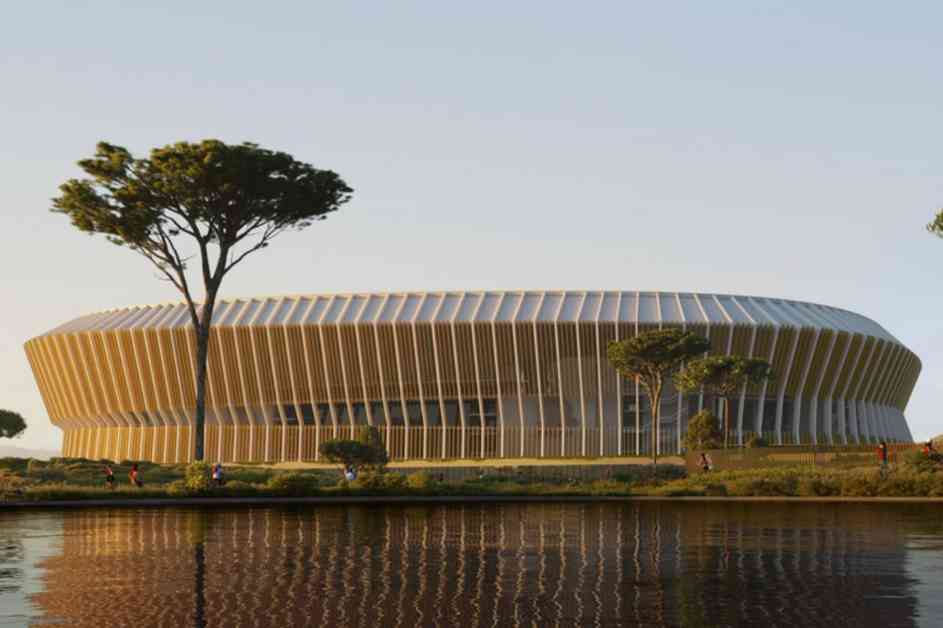AS Roma recently unveiled their plans for a new stadium after a productive meeting with the Mayor of Rome, Roberto Gualtieri. The club intends to build a completely new stadium, marking their departure from the Stadio Olimpico for the first time in nearly 70 years. One of the key features of the new stadium will be the construction of a new Curva Sud, which AS Roma envisions becoming the largest stand in all of Europe. Currently, the largest free-standing grandstand in Europe is Borussia Dortmund’s Südtribüne at Signal Iduna Park, with a capacity of 25,000 spectators.
In addition to focusing on creating a state-of-the-art stadium, AS Roma has also made sustainability a top priority in their project. The club has pledged to ensure that the new stadium not only benefits AS Roma supporters but also the citizens of Rome.
During the presentation of their plans to city representatives and council members, including Mayor Gualtieri and head of city planning Maurice Veloccia, AS Roma’s vice-President Ryan Friedkin and club CEO Lina Souloukou were present. The club expressed their excitement about the innovative nature of the project and the positive reception it received.
Ryan Friedkin stated, “It was an honor to meet with the Mayor of Rome, Roberto Gualtieri, today and present our vision for the new stadium. This extraordinary stadium is not only a new home for AS Roma and its fans but also a point of reference for all the citizens of Rome. The new Curva Sud, set to become the largest Curva in Europe, will be a powerful focal point, embodying the passion and energy of our supporters.”
He continued, “With its iconic design inspired by classical Roman architecture and state-of-the-art facilities, the stadium will offer a world-class experience for everyone from football fans to the local community. As the staunch custodians of AS Roma, we are committed to creating a space that embodies the spirit and tradition of our club while also becoming a global symbol of innovation and excellence and a model of environmental responsibility.”
The new stadium project by AS Roma is not only about creating a modern and innovative sports facility but also about fostering a sense of community and sustainability. The club’s commitment to building a stadium that benefits both the fans and the city of Rome sets a positive example for future sports infrastructure projects. With a focus on tradition, innovation, and environmental responsibility, AS Roma is aiming to create a stadium that will not only be a home for football but also a symbol of excellence and progress for the entire community.
